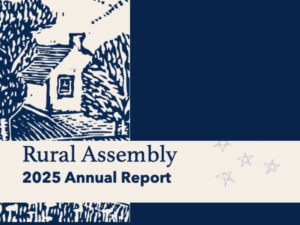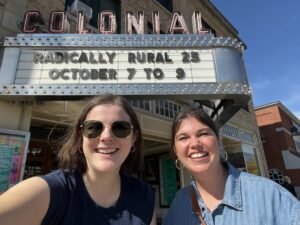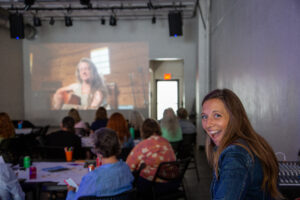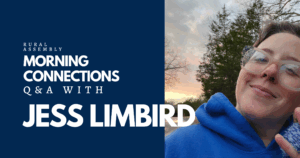Appalachian Ohio-West Virginia Connectivity Summit
Tuesday, July 18
Marietta, Ohio
Workshop: 8:30 a.m. to 4 p.m. at Washington State Community College
Town Hall: 6 p.m. to 8 p.m. at Marietta High School
Registration here.
Overview
In the rural communities of southeast Ohio and northern West Virginia, nearly one-fourth of the population – 14.5 million people – lacks access to high-speed Internet service, according to the Federal Communications Commission (FCC). This is unacceptable in an era when broadband plays a key role in our jobs, education, health care and social connections.
The Appalachian Ohio-West Virginia Connectivity Summit is bringing together key players from across the country to brainstorm strategies for bringing broadband access to our rural communities.
Programming
Activities will include a day of workshops and panel discussions at Washington State Community College, then an evening town hall meeting at Marietta High School. Please register here only if you plan to attend the daytime conference.
Click here for complete itinerary.
Selected Speakers, Panelists, Guests

Mignon L. Clyburn
Commissioner and former chairwoman of the Federal Communications Commission and a champion of ensuring that robust, affordable telecommunications services are available in rural communities. This summit is a stop in her nationwide #ConnectingCommunities listening tour, and she is gathering stories about rural communities’ challenges in accessing broadband.

Kate Forscey
Associate counsel for government affairs for Public Knowledge, Public Knowledge, an organization that helps shape public policy on wide range of communication issues. Forscey advocates for the public interest on internet and technology policy and government affairs, including net neutrality, spectrum policy, and other issues crucial to preserving an open internet and consumer digital rights.
Read more about Forscey and Public Knowledge here.

Christopher Mitchell
An international expert on community broadband networks whose research has been sought after by the White House and the Federal Communications Commission when they make decisions with national implications.
Read more about Mitchell here.
Marty Newell

Founder and chief operating officer of the Center for Rural Strategies, a nonprofit organization seeking to improve economic and social conditions for communities in the countryside and around the world through the creative and innovative use of media and communications. A passionate advocate for rural communities, Newell was a founder of Appalshop, an award-winning media and cultural organization, and has been a consultant on rural issues for the National Endowment for the Arts, Appalachian Regional Commission, the U.S. Department of Agriculture.
Read more about Newell and the Center for Rural Strategies here.
For a complete list of speakers, see the complete itinerary.
Questions?
Contact us at [email protected] or 740-508-1723
Facebook: @broadband4app
Instagram: @connectivity_summit
Twitter: @broadband4app
Tell Us Your Broadband Story
If you have a story about how the lack of reliable broadband access has affected you, your family or your neighbors, please share it with us at [email protected] or 740-508-1723.
Register Now
The summit at Washington State Community College is limited to 240 participants, and you must register here to participate.
The town hall is at Marietta High School Gym and seating is first come, first served. Doors open at 5 p.m.
Our Partners
Institute for Local Self-Reliance
Explore These Resources
The Central Appalachia Regional Network published the Central Appalachia Broadband Policy Recommendations in 2012-2013. The publication offers useful insights on how Kentucky, Maryland, Ohio, Tennessee, Virginia, and West Virginia might improve their connectivity through adopting policy-shaping strategies.
The Fiber Broadband Association created The Fiber Broadband Association’s Community Toolkit with targeted information for consumers, providers, policymakers, advocates and media concerning wired broadband. Especially useful in the Toolkit is the Blandin Foundation’s “Community Decision Tree.”
Though only operating in Minnesota, the Blandin Foundation is known for its work in shaping public policy and engaging Minnesotan rural communities in pursuing their own broadband solutions. Information and examples of community owned broadband can be gleaned from their website.
Appalshop of Whitesburg, KY has long been known for supporting Appalachian communities in their efforts for achieving social justice and equity. The organization has a large collection of broadband articles and radio broadcasts. Type “broadband” into the search bar for access to these resources.
MuniNetworks.org provides resources for those desiring to explore the possibilities of building their own community based broadband networks. The network provides case studies, fact sheets, and more to help leaders make decisions about the right approaches for their communities.
The Appalachian Regional Commission has created the Broadband Planning Primer and Toolkit to explain all things broadband.








